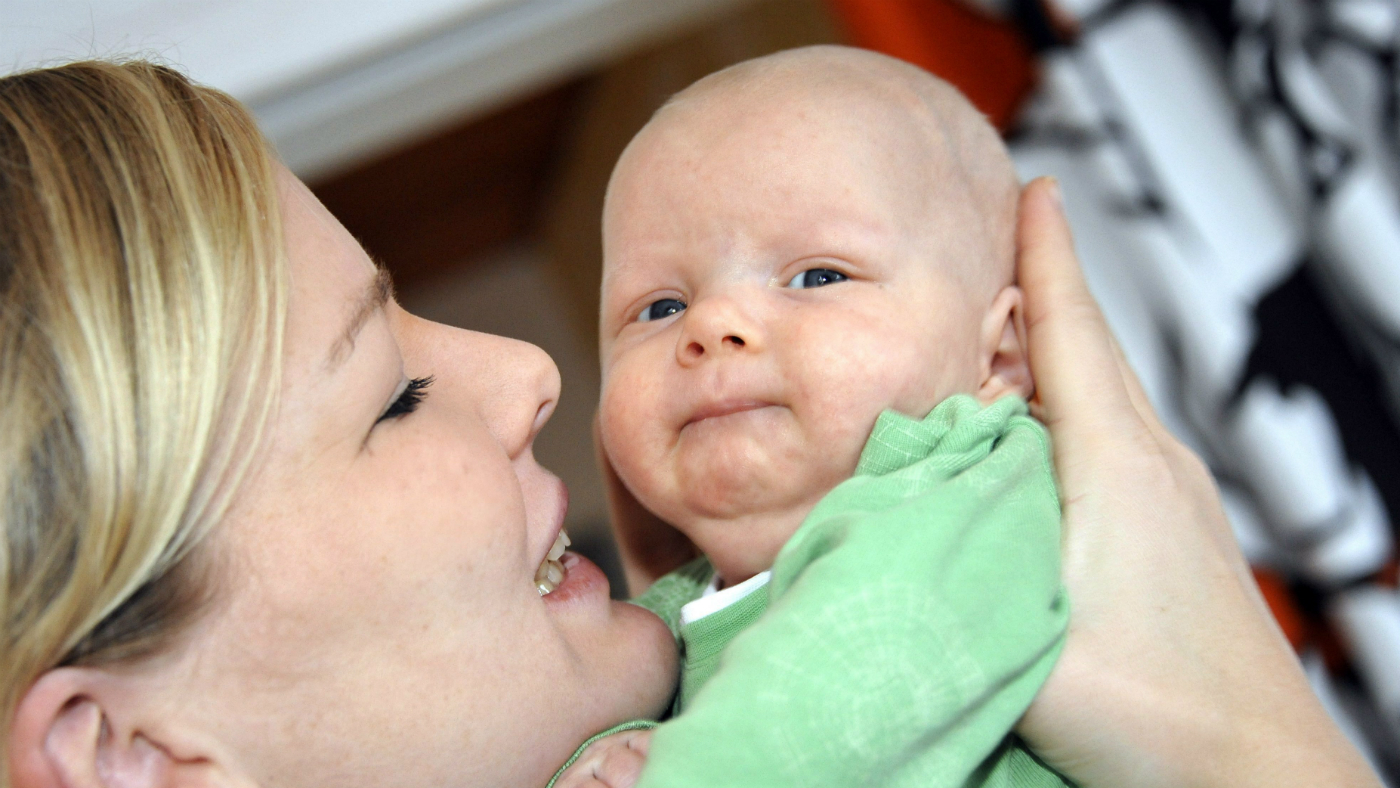Why your first memories may not be real
Researchers find almost 40% of people have recollection from before the age of three - which is ‘impossible’

A free daily email with the biggest news stories of the day – and the best features from TheWeek.com
You are now subscribed
Your newsletter sign-up was successful
The earliest memories that many of us treasure so dearly may never have happened, according to a new scientific study.
In one of the largest surveys of its kind, 38.6% of 6,641 people claimed to have memories from the age of two or younger. A further 893 claimed to recollect events that took place when they were one or younger, say the researchers, led by academics from City, University of London.
But the results of previous studies indicate that people’s earliest memories date from around three to three-and-a-half years of age, and that developing any memories before this is highly unlikely or even impossible, The Daily Telegraph reports.
The Week
Escape your echo chamber. Get the facts behind the news, plus analysis from multiple perspectives.

Sign up for The Week's Free Newsletters
From our morning news briefing to a weekly Good News Newsletter, get the best of The Week delivered directly to your inbox.
From our morning news briefing to a weekly Good News Newsletter, get the best of The Week delivered directly to your inbox.
Such “recollections” seem to be “particularly prevalent among middle-aged and older adults”, news site ScienceDaily adds.
According to Medical Daily, “fragments of early experience (such as a stroller, family relationships and feelings of sadness) may be combined with accumulated knowledge about one’s own infancy through conversations or pictures”. The health news site explains: “These aspects come together and form a representation of sorts in our minds, rather than an actual memory.”
Psychology professor Martin Conway, who co-authored the new study, said: “Crucially, the person remembering them doesn’t know this is fictional. In fact, when people are told that their memories are false they often don’t believe it.
“When we looked through the responses we found that a lot of these first ‘memories’ were frequently related to infancy, and a typical example would be a memory based around a pram.
A free daily email with the biggest news stories of the day – and the best features from TheWeek.com
“For this person, this type of memory could have resulted from someone saying something like, ‘Mother had a large green pram’. The person then imagines what it would have looked like. Over time these fragments then becomes a memory and often the person will start to add things in such as a string of toys along the top.”
-
 Local elections 2026: where are they and who is expected to win?
Local elections 2026: where are they and who is expected to win?The Explainer Labour is braced for heavy losses and U-turn on postponing some council elections hasn’t helped the party’s prospects
-
 6 of the world’s most accessible destinations
6 of the world’s most accessible destinationsThe Week Recommends Experience all of Berlin, Singapore and Sydney
-
 How the FCC’s ‘equal time’ rule works
How the FCC’s ‘equal time’ rule worksIn the Spotlight The law is at the heart of the Colbert-CBS conflict
-
 Home Office worker accused of spiking mistress’s drink with abortion drug
Home Office worker accused of spiking mistress’s drink with abortion drugSpeed Read Darren Burke had failed to convince his girlfriend to terminate pregnancy
-
 In hock to Moscow: exploring Germany’s woeful energy policy
In hock to Moscow: exploring Germany’s woeful energy policySpeed Read Don’t expect Berlin to wean itself off Russian gas any time soon
-
 Were Covid restrictions dropped too soon?
Were Covid restrictions dropped too soon?Speed Read ‘Living with Covid’ is already proving problematic – just look at the travel chaos this week
-
 Inclusive Britain: a new strategy for tackling racism in the UK
Inclusive Britain: a new strategy for tackling racism in the UKSpeed Read Government has revealed action plan setting out 74 steps that ministers will take
-
 Sandy Hook families vs. Remington: a small victory over the gunmakers
Sandy Hook families vs. Remington: a small victory over the gunmakersSpeed Read Last week the families settled a lawsuit for $73m against the manufacturer
-
 Farmers vs. walkers: the battle over ‘Britain’s green and pleasant land’
Farmers vs. walkers: the battle over ‘Britain’s green and pleasant land’Speed Read Updated Countryside Code tells farmers: ‘be nice, say hello, share the space’
-
 Motherhood: why are we putting it off?
Motherhood: why are we putting it off?Speed Read Stats show around 50% of women in England and Wales now don’t have children by 30
-
 Anti-Semitism in America: a case of double standards?
Anti-Semitism in America: a case of double standards?Speed Read Officials were strikingly reluctant to link Texas synagogue attack to anti-Semitism